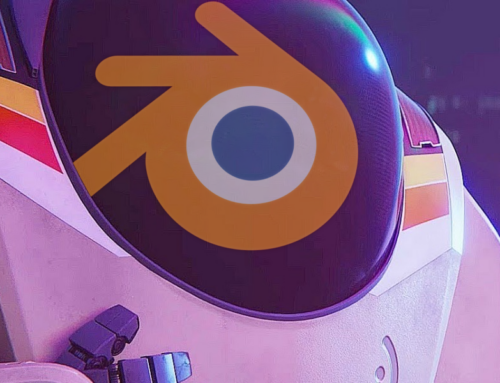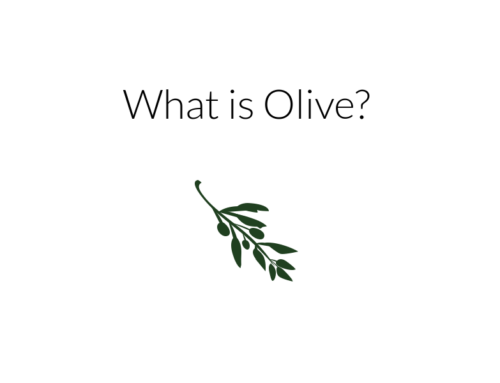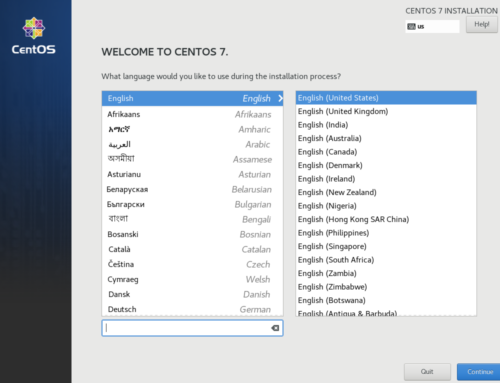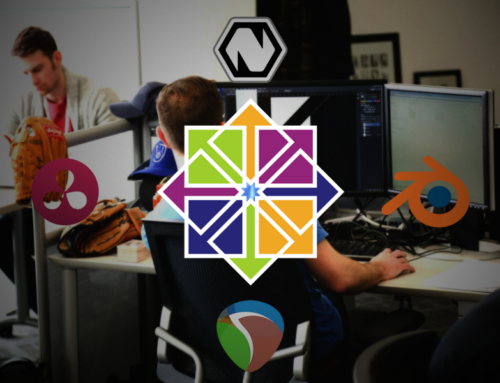As most of you probably know, we’ve been running a hardware survey for the VFIO Gaming Community, to get up to date info on both compatibility and prevailing trends in the space.
Read Also: Xlevus joins the TPP dev team
With over 100 responses so far, we’re ready to release some of the information as we process the more complex elements in the survey.
We’d like to thank all who participated, and ask those that haven’t had a chance to enter their hardware setup here, as every little bit of info helps us build a compatibility matrix, and make better insights into what works and what doesn’t. In the meantime, here’s a few highlights as we parse all the verbose info dumps and process each write-in category.
Survey Says: The ACS Patch is a Showstopper
Suprisingly, a vast majority of survey entrants avoid the ACS patch, even in the face of poor IOMMU isolation and less than ideal hardware:
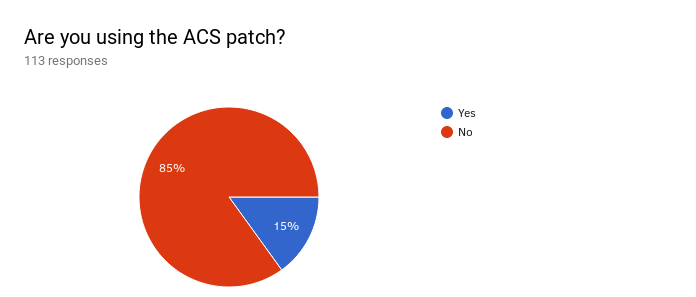
It seems that, at least for now, that the community values security over convenience in this respect. With this in mind, we’ll prioritize proper IOMMU isolation over other motherboard features in our future build guides and hardware content.
Arch Linux is a Sleeping Giant
While we expected Arch to be one of the foremost VFIO Distros, The Survey puts it at more than half of the users in the community:
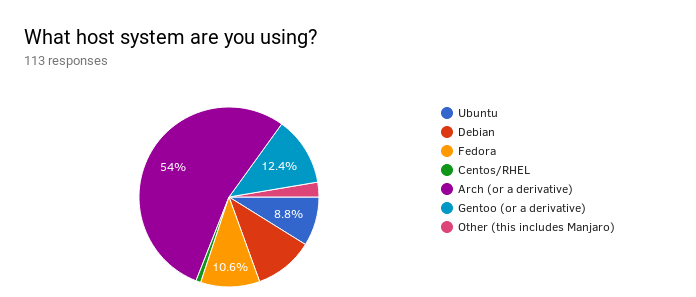
Also interesting: The rest of the popular options seem to follow the inverse of regular desktop marketshare, with Gentoo and Debian leading Ubuntu for popularity.
While the Archwiki tends to be the default resource for many when it comes to passthrough gaming, we’re attempting to provide information out of its scope, and for other distros. Knowing which ones to support first helps immensely with this task.
Asus and Nvidia are Community Favorites
The majority of entrants bought ASUS motherboards, and (unsurprisingly) Nvidia guest cards:
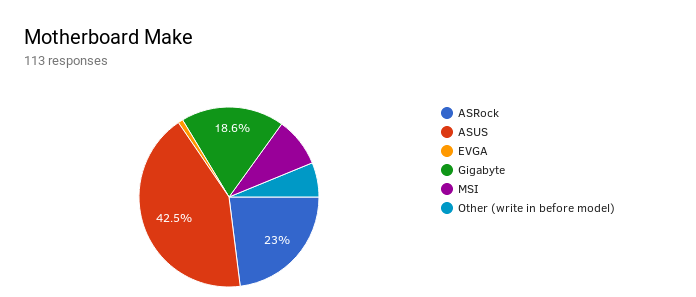
In addition, something like 10% of entrants bought an Nvidia reference model over an AiB partner model, making Nvidia reference the most common write-in model among survey participants.
The Reset Bug Isn’t as Bad as You Think
Of all the AMD guest card survey participants, only 1 in 4 experienced the reset bug. The affected models seem to be restricted to Tonga, Vega and heavily overclocked Polaris refresh cards (other cards were also affected, but in a different manner, explained below.)
However, another pattern became apparent within that subset — it seems that there may be different levels of severity, or entirely separate bios issues that cause similar behavior to differing extents.
The most common manifestation of the bug is a simple refusal to restart after the VM is shut down, but with a few models of card that seem to have a similar issue, a reset bug is only triggered if the VM fails to shut down gracefully. The aforementioned card types suffer from the full reset bug, but in Fiji and Hawaii refresh, and some Polaris refresh models, the bug seems to manifest differently:
On a crash or unclean shutdown, the card will spin its fans up to 100%, and lock up until the host system is rebooted, but the cards will start and stop with the VM flawlessly otherwise under normal operation.
This difference in symptoms may explain some of the confusion surrounding the AMD reset bug — it may, in actual fact, be 2 distinct issues that produce similar behavior. This has been my suspicion for a long time, but the survey helped corroborate it.
Thank You for Participating in The Survey (and there’s still time if you haven’t)
We’ve had over 100 participants so far, and that’s a big step in helping inform the community — We’ll be releasing the full dataset along with more in-depth analyses in the coming days, but we want to get as many responses as we can in order to get an accurate cross-section of the community.
If you haven’t participated yet, please consider doing so in the next few days so that we, as well as everyone using VFIO can get the most accurate picture possible of what hardware and methods we’re using to improve our passthrough Experiences.
Join our Discord for more info and discussion of the survey and other topics.
Images courtesy Pixabay

